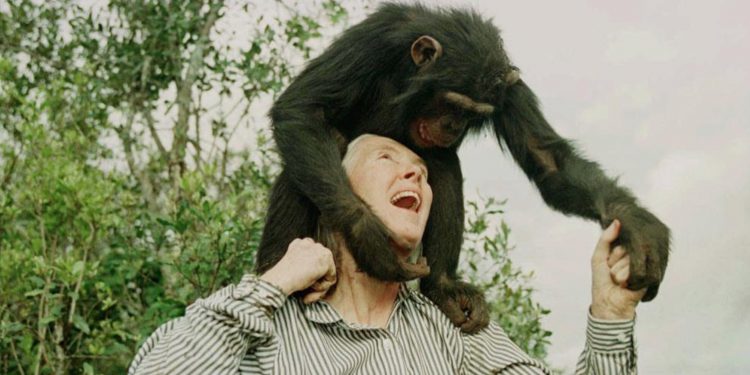AP reports that Jane Goodall, the conservationist renowned for her expertise on chimpanzees and her globe-spanning advocacy of environmental causes, was named this year’s winner of the prestigious Templeton Prize, for those whose life’s work embodies a fusion of science and spirituality.
Goodall, born in London in 1934, traveled to Kenya in 1957 and met the famed anthropologist and paleontologist Louis Leakey. In 1960, at his invitation, she began her groundbreaking study of chimpanzees in what is now Tanzania.
Her field research revolutionized the field of primatology, helping transform how scientists and the public perceive the emotional and social complexity of animals. She was the first to observe that chimpanzees engage in activities previously believed to be exclusive to humans, such as creating tools, and she demonstrated that they have individual personalities.
“Her discoveries have profoundly altered the world’s view of animal intelligence and enriched our understanding of humanity in a way that is both humbling and exalting,” said Heather Templeton Dill, president of the John Templeton Foundation, which helps administers the prize.
“Every time a little species vanishes, it may not seem important,” Jane Goodall said. “But the thread is pulled from that tapestry and the picture gets weaker as more threads are pulled, until that tapestry, once so beautiful, is hanging in tatters.”
“Some people seem to believe that we can live separated from nature, but we can’t.”
Raised as a Christian, Goodall said she developed her own sense of spirituality in the forests of Tanzania — in essence, believing that all living things and the natural world are connected through a divine force.
She recalled her mother saying to her, when she was a girl, “You will be brought up in a Christian family, so you worship God. But you might have been born in Egypt and then you would worship Allah, or you might have been born in a Buddhist country or one with a Hindu religion.”























